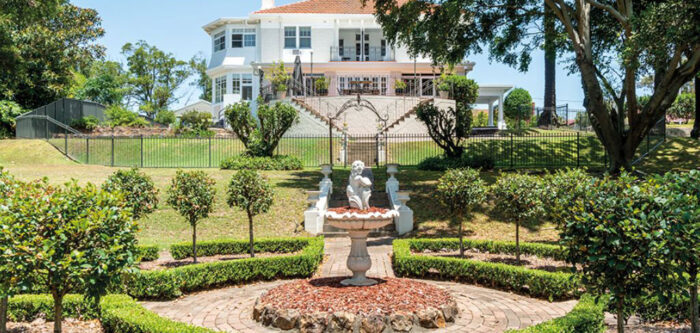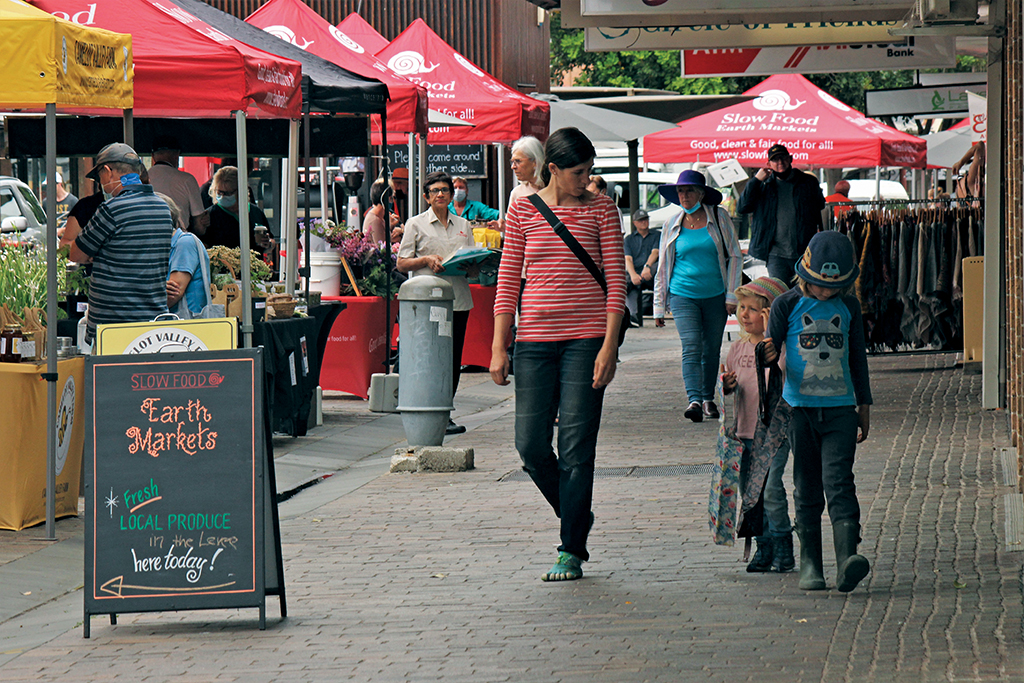
Understanding Amorelle
The story of Amorelle Dempster’s life is as fascinating as it is inspiring – a journey of passion, compassion and leadership.
Bright red-topped shelters line The Levee, Central Maitland’s pedestrian-friendly shopping precinct, with fresh and wholesome produce attracting a steady flow of customers. Amorelle Dempster is there, offering support and encouragement to stall-holders. She treads a gentle line between mother hen and rooster, between care and control. Her official title here is Chairperson of the Slow Food Earth Market committee.
She is engaging, persuasive, determined. She is a leader. How has that come to be? In the life of Amorelle Dempster there are clearly marked stages.
My first encounter with Amorelle was at the Beatty Hotel in Gresford in the early 2000s. Rumour had spread that there was a new chef offering superb Sri Lankan cuisine, and it was imperative that one booked a table in advance. Amorelle was the pot-stirrer.
Prior to that Amorelle, her husband Andrew and their two small children had spent a decade in Sydney. In the mid-1990s Amorelle had been the ‘fairy-godmother’ arrival at the Greenwich pre-school, willing to take on the committee presidency. Applying her marketing skills, she launched into fund-raising for building extensions, presenting her children as Dickensian urchins at the ferry wharf to win from the North Shore commuters pledges of $500 a brick. When a mighty sum had accrued, Amorelle made persistent approaches to the local Council until they agreed to match the funds raised dollar for dollar. The pre-school upgrade became a reality.
A step further back in time and Amorelle is in Melbourne, not long arrived as a migrant from the sub-continent with an excellent command of English and a radiant self-confidence well beyond her years. It is 1978 and the 20-year-old Amorelle has convinced a job interview panel at a prestigious advertising agency that while she had no qualification, she would nevertheless be a valuable asset in their copy-writing department. Rewarded instead with the position of ‘Girl Friday’ she so impressed her employers that a year or two later they sent her to complete a degree in business with a major in marketing. She was climbing the rungs in the corporate world.
Or we journey right back to the 1950s and ‘60s, to Amorelle’s place of birth, in the Mattakkuliya district of the city of Colombo, in the crowded housing at the mouth of the Kelaniya Ganga River. Here Amorelle was educated at the Good Shepherd Convent girls’ school. “The Irish nuns believed girls should be trained for leadership roles,” says Amorelle.
I am sitting with Amorelle at the end of her working day at a table in the Reader’s Cafe and Larder, in the building at Greenhills that houses the East Maitland Library. Amorelle and her husband are the proprietors but, Amorelle is the face of the operation. At the end of an intense day she seems not at all tired, and indeed I am aware of her reputation for indefatigability. I suggest she might like to take me back to her childhood, and in an instant I am transported.
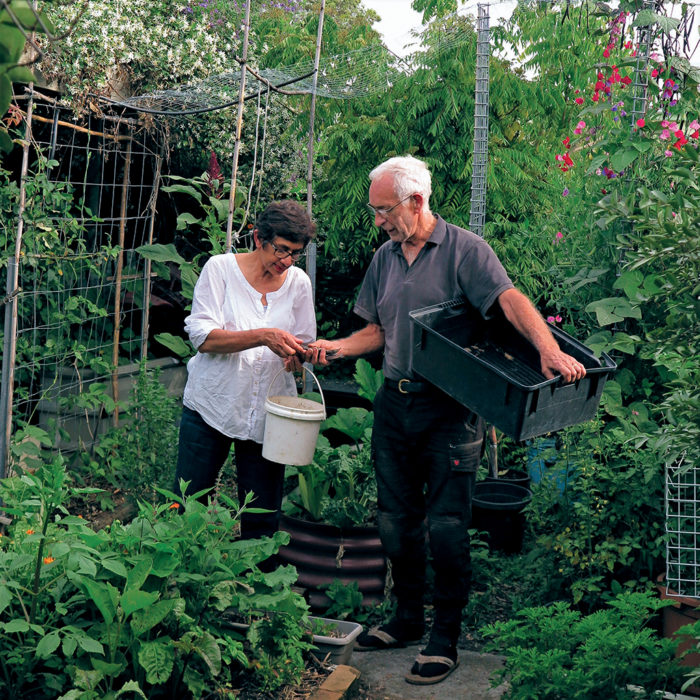
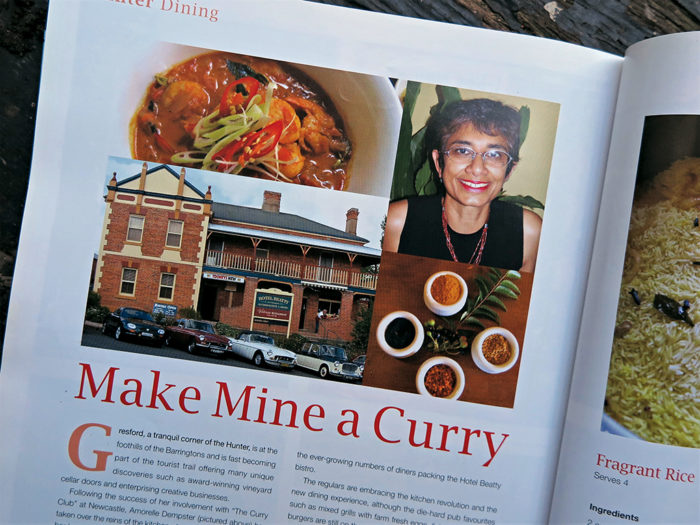
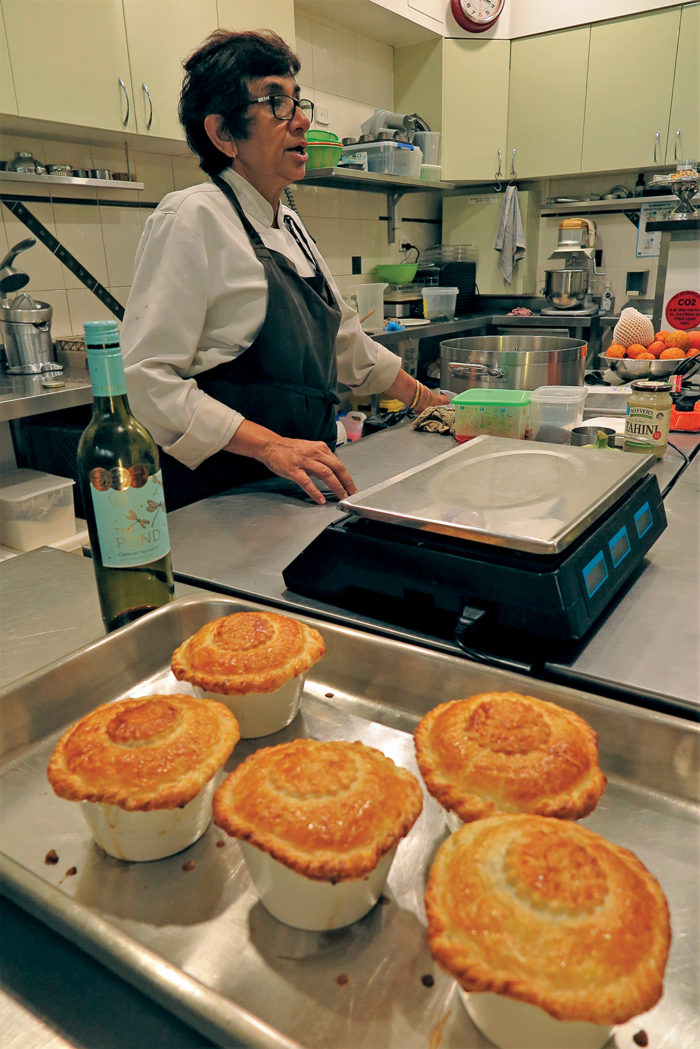
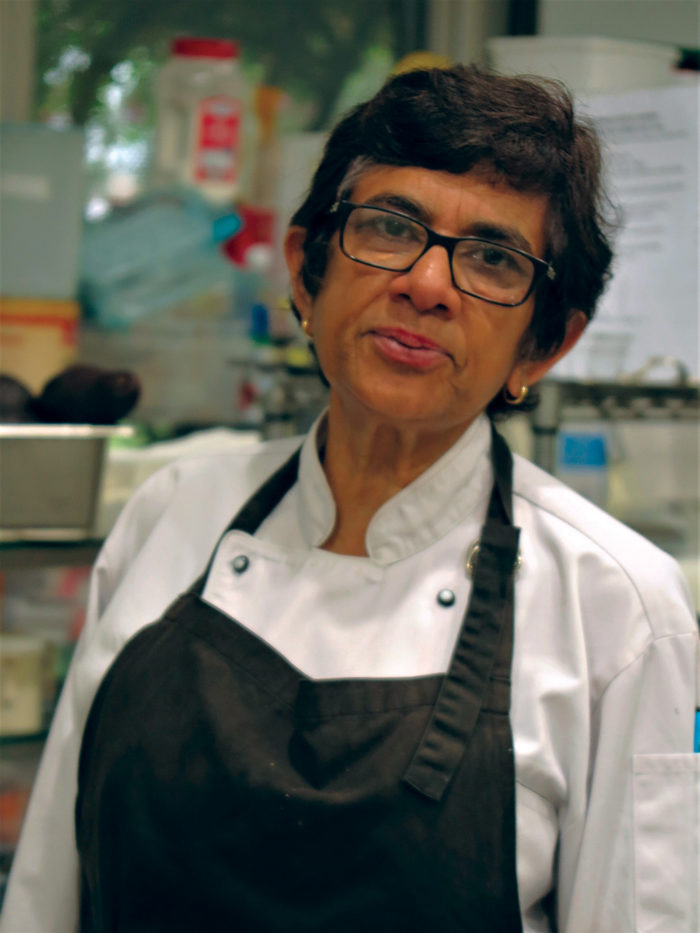
Amorelle is the fourth of six children, her mother Portuguese Sri Lankan and her father Dutch Sri Lankan. A tiny minority, these mixed-heritage families were known as Burghers, and well respected. English was the language spoken at home, and growing up Amorelle learned of the world beyond through books from the British Council library.
In a home where all cooking was on an open fire, and ingredients came from the garden, from door-to-door hawkers, and from local markets selling produce grown in the district, Amorelle developed her appreciation and understanding of healthy home-based cuisine. The family walked or used public transport. Frugality was a fundamental part of their lives.
Before leaving school Amorelle joined the Jaycees, an organisation with the noble aim to guide young people to be principled leaders in their communities. By eighteen she was organising meetings and guest speakers.
British Ceylon was now the Republic of Sri Lanka. Amorelle had been raised through a time of political and social turmoil. When Sinhalese became the country’s official language many Burgher families chose to leave. Amorelle’s family was among them.
Wasted space
Arriving to live in Maitland in 2011 Amorelle was struck by the surrounding farms and how few of them appeared to be growing food for the local population. “It ate into my psyche,” says Amorelle. “It was a problem that needed to be solved.”
Read more about Amorelle in our Autumn issue of Hunter & Coastal Lifestyle Magazine or subscribe here.
Story and photography by Ken Rubeli

